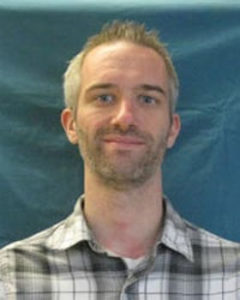
Steven Ahrendt
Data Scientist
- Science Programs
Secondary Affiliation: Environmental Genomics and Systems Biology
- Biosystems Data Science
Building: 91, Room 350G3
Mail Stop: 91R0183
sahrendt0@lbl.gov
Research Interests
- Annotation of fungal genomes to better understand their roles in interactions with e.g. plants, algae, and other fungi
- Comparative phylogenomics to help resolve the Fungal Tree of Life, particularly untangling the lesser studied basal fungal clades
- Elucidation of the underlying biological mechanisms of efficient biomass degradation by fungi



